Canonical URLs play a crucial role in Search Engine Optimization (SEO) as they help search engines understand which version of a webpage should be indexed and displayed in search results.
A canonical URL is an HTML link element with a “rel” attribute set to “canonical” that is placed within the head section of a webpage. It indicates to search engines the preferred version of a webpage, even if there are multiple versions available. This is important because search engines may consider identical or similar content on multiple pages to be duplicate content, which can negatively impact a website’s SEO.
For example, if a website has both “example.com” and “www.example.com” versions of its homepage, a search engine may not know which version to index and display in search results. By implementing a canonical URL on the “www.example.com” version that points to the “example.com” version, the website is telling search engines that the “example.com” version is the preferred version and should be indexed and displayed.
Canonical URLs can also be used to address other types of duplicate content issues, such as when a webpage is accessible via multiple URL parameters or when a webpage has both mobile and desktop versions. By implementing canonical URLs, a website can ensure that search engines only index and display the preferred version of a webpage, which helps to avoid any potential penalties for duplicate content.
In addition to addressing duplicate content issues, canonical URLs can also be used to consolidate link equity. Link equity refers to the value that a website receives from links pointing to its pages. By consolidating link equity, a website can improve its overall SEO by ensuring that the most valuable pages receive the most link equity. For example, if a website has several versions of a product page, it can use canonical URLs to consolidate link equity to the preferred version of the page.
It is important to note that the canonical tag is a hint to search engines and it is not a directive. Therefore, search engines may choose to ignore the canonical tag if they find it to be in conflict with other signals on the page or the website.
Another important aspect to consider is that canonical URLs should not be used as a way to hide or bury content. If the content of the non-canonical pages is significantly different from the content of the canonical page, search engines may still index and display the non-canonical pages. Additionally, it is also important to make sure that the canonical URL is accessible and returns a 200 status code, as search engines may ignore canonical tags that point to non-existent or error pages.
In conclusion, canonical URLs play a crucial role in SEO by helping search engines understand which version of a webpage should be indexed and displayed in search results. By addressing duplicate content issues and consolidating link equity, canonical URLs can help improve a website’s overall SEO. However, it is important to use them correctly and not to use them as a way to hide or bury content.
Improve your online visibility and drive more traffic to your website with our professional SEO services in Malaysia. Don’t let your competitors outrank you, Contact us today to see how we can help you achieve your business goals!






